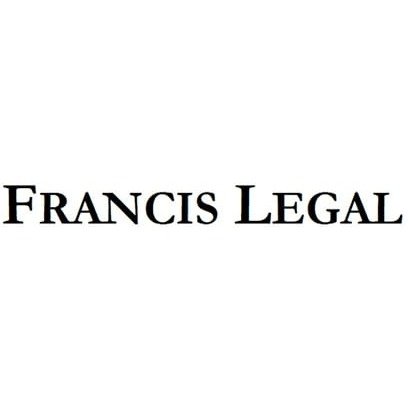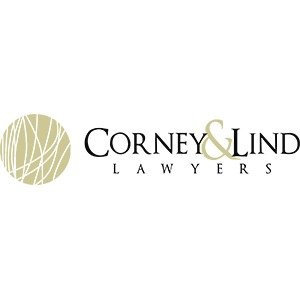Best Antitrust Litigation Lawyers in Australia
Share your needs with us, get contacted by law firms.
Free. Takes 2 min.
Or refine your search by selecting a city:
List of the best lawyers in Australia
About Antitrust Litigation Law in Australia
Antitrust litigation in Australia concerns legal action related to breaches of competition law, primarily governed by the Competition and Consumer Act 2010 (CCA). The aim is to promote fair market conduct, healthy competition, and to prevent anti-competitive behavior such as cartels, misuse of market power, and collusive practices. Antitrust, commonly referred to as competition law in Australia, ensures that businesses operate on a level playing field, promoting consumer welfare, innovation, and economic growth.
Why You May Need a Lawyer
Antitrust issues are highly specialized and can significantly impact businesses, consumers, and the wider economy. You may need a lawyer experienced in antitrust litigation for several reasons:
- You are under investigation by the Australian Competition and Consumer Commission (ACCC) for alleged anti-competitive conduct.
- Your business has been accused of participating in cartel activities such as price fixing, bid rigging, or market sharing.
- Your company wants to challenge anti-competitive behavior by competitors that is harming your interests.
- You need to comply with merger control requirements or need advice on whether a business acquisition may breach competition laws.
- You have received a notice to provide information or documents to authorities under the compulsory information-gathering powers of the ACCC.
- You are considering making a leniency application to reduce potential penalties or sanctions.
- You are seeking advice on entering into joint venture agreements, supply contracts, or distribution arrangements.
Local Laws Overview
In Australia, the Competition and Consumer Act 2010 (CCA) is the primary source of antitrust law. The CCA applies to companies, individuals, and other forms of commercial activity across Australia. Key aspects include:
- Cartel Conduct: Strictly prohibits agreements or arrangements between competitors to fix prices, restrict outputs, allocate markets, or rig bids. Criminal penalties can apply.
- Misuse of Market Power: Prohibits companies with substantial market power from engaging in conduct intended to eliminate or substantially damage competitors.
- Merger Control: Mergers or acquisitions likely to substantially lessen competition in any market can be challenged or prevented by the ACCC.
- Exclusive Dealing: Deals that restrict the freedom of businesses to choose their trading partners or the terms on which they trade can be subject to legal scrutiny.
- Collective Bargaining: Some forms of collective negotiation are permitted provided the arrangements receive ACCC authorization or notification.
- Penalties: Breaches of competition law can result in significant financial penalties, compensation claims, and in some cases, imprisonment for individuals.
Frequently Asked Questions
What is considered anti-competitive conduct in Australia?
Anti-competitive conduct includes activities like price fixing, market sharing, bid rigging, and misuse of market power designed to harm competitors or restrict competition.
Who enforces antitrust laws in Australia?
The Australian Competition and Consumer Commission (ACCC) is the primary regulatory authority enforcing antitrust laws in Australia.
What are the penalties for breaching competition law?
Penalties can include significant monetary fines for corporations and individuals, compensation orders, corrective advertising, and even imprisonment for serious cartel offences.
Can individuals be held personally liable?
Yes, individuals such as company directors or managers can be personally liable for breaches of competition law and may face personal fines or imprisonment.
What is cartel conduct?
Cartel conduct involves agreements between competitors to fix prices, rig bids, restrict outputs, or divide markets, all of which are illegal and subject to strict penalties.
How are mergers regulated in Australia?
Mergers and acquisitions are regulated by the ACCC, which can oppose or allow transactions based on their potential impact on competition within Australian markets.
What should I do if I receive a notice from the ACCC?
If you receive an ACCC notice or investigation request, you should seek legal advice immediately before responding or providing any information or documents.
Can I report suspected anti-competitive behavior?
Yes, individuals and businesses can report suspected breaches of competition law to the ACCC for investigation and potential enforcement action.
Are there any exemptions to competition law?
Some conduct may be exempt through ACCC authorization or notification, especially where the conduct may result in public benefits outweighing anti-competitive effects.
How long do antitrust investigations typically take?
The length of investigations varies widely depending on complexity but can range from several months to years, especially if the case proceeds to litigation.
Additional Resources
If you seek more information or assistance related to antitrust litigation in Australia, consider these resources:
- Australian Competition and Consumer Commission (ACCC): The ACCC provides guidance, enforces competition laws, and offers channels for lodging complaints.
- Australian Competition Tribunal: Handles certain competition cases, including reviews of ACCC merger decisions.
- Federal Court of Australia: Deals with litigation under the Competition and Consumer Act 2010.
- Law Council of Australia: Offers resources and lists qualified legal professionals specializing in competition law.
- Australian Government’s Business.gov.au: Provides plain language guides on business and competition law compliance.
Next Steps
If you are facing or anticipating antitrust litigation or wish to ensure compliance with Australia’s competition laws, these steps can be helpful:
- Document all relevant correspondence and agreements that may relate to the issue at hand.
- Contact a qualified competition and antitrust lawyer familiar with Australian law as early as possible.
- Seek confidential legal advice before responding to any government body, including the ACCC.
- Review your business practices and internal policies regarding competition law compliance.
- If reporting anti-competitive conduct, prepare a clear description and any supporting evidence for submission to the ACCC.
- Regularly review regulatory updates and consider staff training to promote ongoing compliance within your organization.
Antitrust litigation can be complex and carry serious consequences for individuals and businesses. Engaging the right legal expert early can help protect your interests and ensure you navigate the regulatory landscape effectively.
Lawzana helps you find the best lawyers and law firms in Australia through a curated and pre-screened list of qualified legal professionals. Our platform offers rankings and detailed profiles of attorneys and law firms, allowing you to compare based on practice areas, including Antitrust Litigation, experience, and client feedback.
Each profile includes a description of the firm's areas of practice, client reviews, team members and partners, year of establishment, spoken languages, office locations, contact information, social media presence, and any published articles or resources. Most firms on our platform speak English and are experienced in both local and international legal matters.
Get a quote from top-rated law firms in Australia — quickly, securely, and without unnecessary hassle.
Disclaimer:
The information provided on this page is for general informational purposes only and does not constitute legal advice. While we strive to ensure the accuracy and relevance of the content, legal information may change over time, and interpretations of the law can vary. You should always consult with a qualified legal professional for advice specific to your situation.
We disclaim all liability for actions taken or not taken based on the content of this page. If you believe any information is incorrect or outdated, please contact us, and we will review and update it where appropriate.
Browse antitrust litigation law firms by city in Australia
Refine your search by selecting a city.















